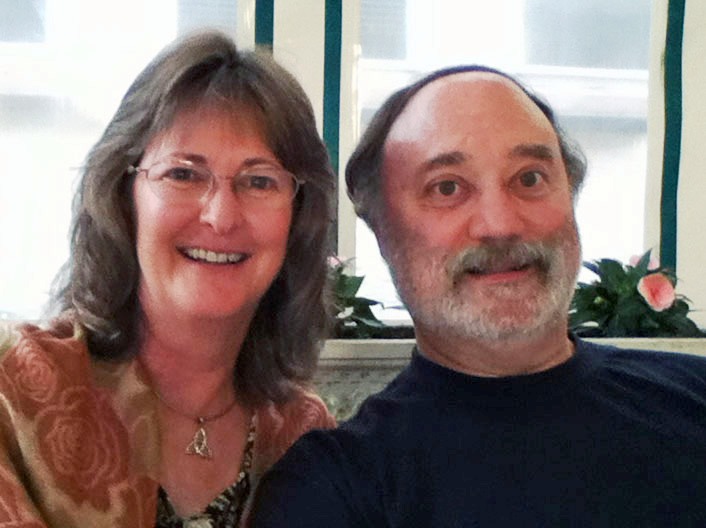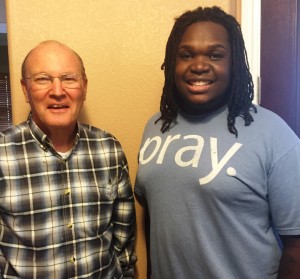Dear Brothers and Sisters:
 The movie The Theory of Everything tells the compelling story of theoretical physicist Stephen Hawking. Though I respect his brilliance and the way he continues to work despite battling Lou Gehrig’s disease, it amuses me when Hawking and other scientists who are atheists claim to be smarter than and thus superior to people who hold to non-atheistic worldviews. The fact is, smart people are found everywhere (including in prison!) and intellectual ability certainly does not equate with superiority.
The movie The Theory of Everything tells the compelling story of theoretical physicist Stephen Hawking. Though I respect his brilliance and the way he continues to work despite battling Lou Gehrig’s disease, it amuses me when Hawking and other scientists who are atheists claim to be smarter than and thus superior to people who hold to non-atheistic worldviews. The fact is, smart people are found everywhere (including in prison!) and intellectual ability certainly does not equate with superiority.

You’ve likely heard of Hawking’s best-selling book, A Brief History of Time, in which he seeks to explain the origin and future of the universe. A few years ago he wrote a sequel with Leonard Mlodinow titled The Grand Design, which asks, “Is the apparent ‘grand design’ of our universe evidence for a benevolent creator who set things in motion? Or does science offer another explanation?” Though the book does not break new scientific ground, it received a lot of attention because Hawking revealed his leaning toward atheism with sweeping statements like these: “Because there is a law of gravity, the universe can and will create itself from nothing” and “Spontaneous creation is the reason there is something rather than nothing…why the universe exists, why we exist.” Though thought-provoking, such statements don’t explain why there is something rather than nothing. Hawking and Mlodinow assume the existence of gravity and spontaneous creation, which then bring forth other things. This line of reasoning is like arguing that a preexisting process of carbonation brought forth Coke and Coors.
Though in times past Hawking would refer to God as “the embodiment of the laws of physics,” he now self-identifies as an atheist, saying, “There is no God” and “Religion believes in miracles, but they are not supported by science.” Being a world-class scientist, Hawking’s statements have credibility in the scientific community, but that should not blind us to his magical thinking when he refers to creation without a creator, law without a lawgiver, and grand design without a Grand Designer. When Hawking and others speak in such terms, they are making assumptions that lack scientific evidence. This is ironic when you consider that atheists often accuse Christians of believing in an imaginary God.
No scientific experiments can “prove” the assumptions that underlie Hawking’s atheistic thinking. Why? Because those assumptions have to do with realities outside the realm of science. It might interest you to know that Hawking’s mother, Isobel Hawking, pointed out the need to keep her son’s comments in perspective. In the book, Stephen Hawking: An Unfettered Mind, she is quoted as saying this:
Not all the things Stephen says probably are to be taken as gospel truth. He’s a searcher, he is looking for things. And if sometimes he may talk nonsense, well, don’t we all? The point is, people must think, they must go on thinking, they must try to extend the boundaries of knowledge; yet they don’t sometimes even know where to start. You don’t know where the boundaries are, do you?
In the book God and Stephen Hawking: Whose Design Is It Anyway? John C. Lennox, professor and emeritus fellow of mathematics at the University of Oxford notes that many of Hawking’s conclusions about origins are not only unproven—they are fundamentally unprovable. He is particularly critical of Hawking’s attempt to explain how something comes from nothing. One of Lennox’s concluding statements gave me a chuckle: “What all this goes to show is that nonsense remains nonsense, even when talked about by world-famous scientists.”
What should we do about scientists like Hawking who hold to atheistic positions? Let us pray for them, knowing that the Father, Son and Spirit continually are reaching out to all people (atheists included!) that they might come to know God and his unconditional love for them. Because I share God’s love for scientists and science, it brings me joy when brilliant scientists like Hawking come to know God and join in proclaiming the reality of God’s love and grace for all people.
Sharing the Grand Designer’s love,
Joseph Tkach







